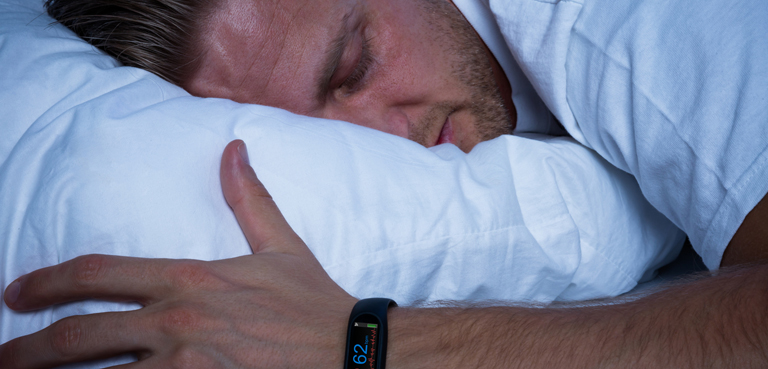Getting enough quality sleep each night is good for your whole body – including making sure your heart stays healthy. Experts recommend that adults of all ages get an average of seven to nine hours of restful sleep each night to help keep their bodies (and heart) in tip-top condition.
Dr. Anusha Shanbhag, MD, a Cardiologist at the Florence Wormald Heart & Vascular Center at St. Elizabeth, shares information about the importance of sleep and how it can affect your heart.
Health Risks Due to Lack of Sleep
Poor sleep negatively impacts your health in many ways. “When you don’t get enough sleep, it raises your heart rate and puts stress on your heart,” says Dr. Shanbhag. Insufficient sleep can also elevate your blood pressure, which is a major risk factor for heart disease.
Lack of sleep can cause you to gain weight by slowing your metabolism and increasing cravings for sugary, high-calorie foods. It disrupts your hunger-regulating hormones which can also cause insulin dependence, putting you at risk of developing diabetes.
A sleep disorder – such as sleep apnea – can decrease oxygen levels and lead to heart rhythm disorders, such as atrial fibrillation, which puts you at risk for stroke and heart failure.
Sleep deprivation has many consequences, including daytime fatigue or lack of motivation. “With this, you have decreased interest in engaging in social or physical activities. You’re likely to experience extreme mood changes, anxiety or problems concentrating,” explains Dr. Shanbhag.
How Insomnia Affects Your Heart
Insomnia is a common sleep disorder that involves difficulty falling or staying asleep. It can also leave you feeling like you didn’t get enough restorative sleep, even if you slept the whole night.
Studies have found a direct relationship between insomnia and an increased risk of heart attack, stroke and hypertension. Getting enough sleep not only improves mood and cognitive function, but it’s also critical for maintaining a healthy heart.
How Restless Legs Syndrome Affects Your Heart
People with restless legs syndrome (RLS) have uncontrollable periodic leg movement due to uncomfortable sensations while they’re trying to sleep. RLS is more common in women and increases in severity with age.
“The story is the same with all sleep disorders,” explains Dr. Shanbhag. “Not only do they contribute to poor sleep, but they also contribute to many of the top risk factors for cardiovascular disease.” Such as:
- Obesity
- High blood pressure
- Diabetes
- Stress
- Inflammation
- Depression
Get the Care You Need
Sleep isn’t always easy, but it’s essential for good heart health. Discover practical tips and tools for transforming your sleep, preventing heart disease and so much more at Take Time for Your Heart.
If you regularly struggle with sleep issues, it’s important to talk to your St. Elizabeth Primary Care provider to determine if you have an undiagnosed sleep disorder or an underlying health condition.

